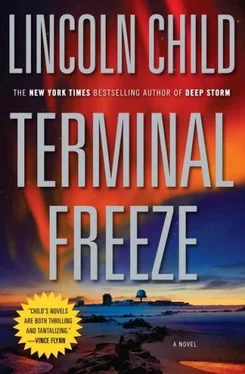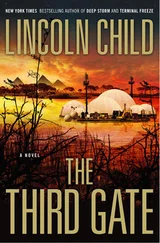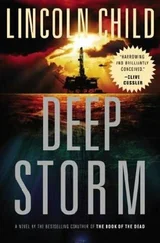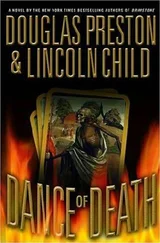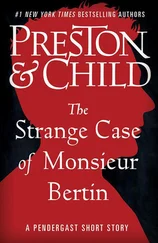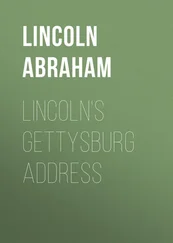“A bit green about the gills, that one,” Barbour said with a chuckle.
Another roustabout appeared, unreeling heavy orange power cables from a large spool, and began attaching them to a panel in the side of the trailer.
Marshall nodded toward it. “What do you suppose it’s for?”
“Her highness,” Barbour replied.
“Who?”
But even as Marshall spoke he became aware of a new sound: the whine of an approaching helicopter. As it grew louder he noticed it didn’t have the hollow, thin drone of the workhorse choppers that had been ferrying equipment to the site in recent days. This was smoother, lower, more powerful.
Then the bird came into sight, moving low against the brightening horizon, and he realized why. This was no puddle jumper: it was a Sikorsky S-76C++, the ultimate in luxury helicopters. And he knew instantly who “her highness” must be.
The Sikorsky came in fast, hovered over the base for a moment, then settled onto the permafrost alarmingly close to the perimeter gate, throwing up stinging clouds of ice and snow pellets. The onlookers quickly scattered, covering their faces and retreating behind the nearby structures. As the whine of the turboshaft engines eased and the ice storm subsided, a hatch in the chopper’s belly opened and a blade-thin woman in a Burberry trench coat emerged. She descended the steps, then stopped, looking around at the scattered outbuildings with an unreadable expression. Then, opening an umbrella-which was buffeted mightily by the prop wash-she mounted the stairs again. Another form emerged-this one wearing what looked to Marshall like an ermine coat-and the two descended together. Marshall craned for a look at the second woman’s face, but the woman in the trench coat was shielding her so adroitly from the prop wash it was impossible to see anything but the end of the fur coat, the flash of shapely legs, and the glitter of black high heels stepping over the permafrost.
The steps folded inward and the hatch closed, the whine of the turboprops increased, and the Sikorsky rose, blades slapping the air. As it moved away, quickly rising and gaining speed, Barbour scoffed audibly.
For the first time, Marshall noticed that Ekberg had been standing nearby, watching the landing. Now she came forward to intercept the new arrivals. “Ms. Davis,” Marshall heard her say. “I’m Kari Ekberg, the field producer. We spoke in New York, and I just wanted to say that I’d be delighted to do anything I can to make you more-”
But if either woman-the one in the trench coat or the one in furs-heard, they gave no sign. Instead, they walked past, mounted the metal steps of the gleaming trailer, slipped inside, and closed the door heavily behind them.
All day the temperature crept slowly upward, past ten degrees Fahrenheit, then twenty, causing Conti to scramble his film crews for shooting a flurry of snow-covered landscapes, just in case. Under brilliant sunlight, the mood of the documentary team improved noticeably as military-grade parkas were traded for woolen sweaters and down jackets. From the direction of Mount Fear, the sharp cracking and booming noises returned as the face of the glacier began calving away once again. Gonzalez deployed his team of army engineers to replace bad bearings that had caused one of the generators to seize up. After lunch, the bulk of the local roustabouts-their initial construction work completed-were ferried south to Anchorage in two cargo helicopters, not to return until the shooting was complete. Only Creel, the burly crew foreman who looked like he consumed steel bolts for breakfast, remained on the base. Around three in the afternoon, Ashleigh Davis emerged from her über-trailer, surveyed the surrounding works with distaste, and then set off for the base-accompanied by her personal assistant in the trench coat-apparently to be briefed by Conti.
After dinner, Marshall returned to the lab where he’d spent the day hard at work, seeing no one. With the bulk of the documentary staff out of doors preparing for the following day’s broadcast, the base had been relatively quiet and he’d had few distractions. Now he was bent over an examination table, so engrossed in his work that he didn’t hear the lab door open softly. He didn’t realize he had company, in fact, until a feminine voice over his shoulder began to intone:
“And soft they danced from the Polar sky and swept in primrose haze;
And swift they pranced with their silver feet, and pierced with a blinding blaze.
They danced a cotillion in the sky; they were rose and silver shod;
It was not good for the eyes of man-’twas a sight for the eyes of God.”
He straightened and turned around. Kari Ekberg was standing there, leaning against a table, dressed in jeans and a white turtleneck. A smile played at the corners of her mouth.
He quoted in return:
“They writhed like a brood of angry snakes, hissing and sulphur pale;
Then swift they changed to a dragon vast, lashing a cloven tail.”
“So,” he said. “They’re out again?”
“And how.”
“You know, ever since I got here and first saw those lights, I’ve been waiting for somebody to quote Robert Service. Didn’t think it would be you.”
“I’ve loved his stuff ever since my older brother scared me half to death, reading ‘The Cremation of Sam McGee’ aloud in a pup tent by the glow of a flashlight.”
“Guess my story’s pretty much the same.” He glanced at his watch. “My God. Ten o’clock.” He stretched, glanced back up at her. “I’d have thought you’d be rushing around with all sorts of last-minute details.”
She shook her head. “I’m the field producer, remember? I do the advance work, make sure everybody knows their dance steps. Once the talent hits the ground I pretty much take a backseat and watch it unfold.”
The talent, Marshall thought, recalling the non-encounter he’d witnessed between Ekberg and Ashleigh Davis that morning.
“And you,” she said. “I haven’t seen you all day. What grand discoveries have you made?”
“We paleoecologists don’t go in for grand discoveries. We just try to answer questions, fill in the dark corners.”
“Then why work so late? It’s not like all this is going away.” And she waved a hand roughly in the direction of the glacier.
“Actually, it’s going away a lot faster than you might think.” He turned to the table, picked up a small yellow flower. “I found this just outside the perimeter wall this morning, poking up out of the snow. Ten years ago, the northerly range of this flower was a hundred miles south. That’s how much global warming has changed things in just a decade.”
“But I thought global warming helped your work.”
“Glacial melt helps me collect more samples, more quickly. I can collect everything from the face of a melting glacier-pollen, insects, pine-tree seeds, even atmospheric bubbles for sampling the amount of CO 2in ancient air. It beats the hell out of drilling ice cores. But that doesn’t mean I’m enthusiastic about global warming. Scientists are supposed to be objective.”
She looked at him, wry smile deepening. “And is that what you are? Objective?”
He hesitated. Then he sighed. “If you want to know the truth…no. Global warming scares the hell out of me. But I’m no activist. It’s just that I understand the consequences better than most. Already we’re losing control of the situation. The earth is remarkably resilient, she’s hugely capable of repairing herself. But this warming trend is accelerating too quickly, and a hundred chain reactions are under way-” He stopped, laughed quietly. “I’m supposed to be neutral on the topic. If Sully heard me talking like this, he’d have my head.”
Читать дальше
